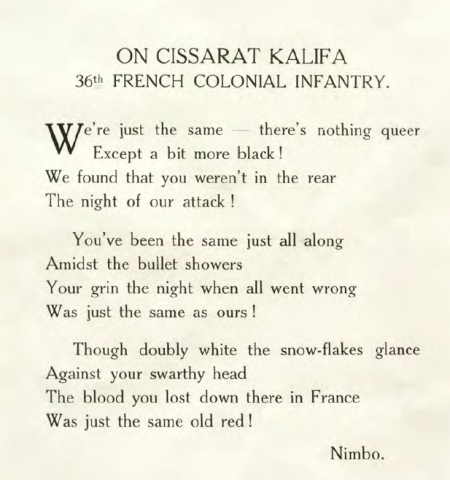War Poetry
The First World War inspired many to create art, war itself being too large a subject to comprehend in isolation. One of these art forms was poetry.
One of the surprising aspects of the Luton WW1 Project was simply finding original and unpublished poetry contained within notebooks and letters. This page aims to share a number of war poems (including two fantastic volumes of Tom's books of war poetry).
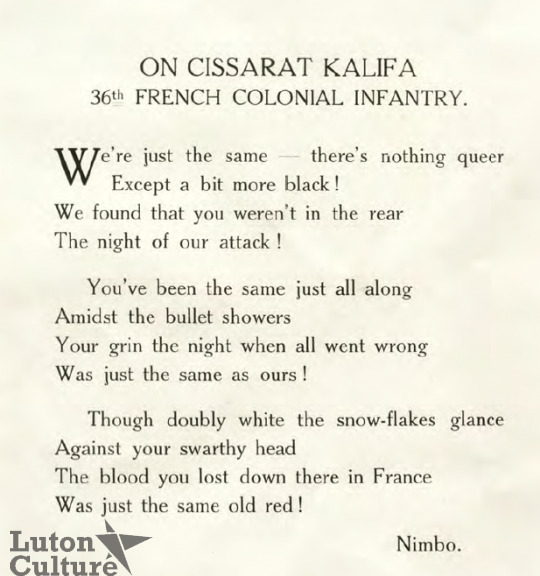
In England
A substantial number of important English poets were soldiers, writing about their experiences of war. A number of them died on the battlefield, most famously Edward Thomas, Isaac Rosenberg, Wilfred Owen, and Charles Sorley. Others includingRobert GravesIvor Gurney and Siegfried Sassoon survived but were scarred by their experiences, and this was reflected in their poetry. Robert H. Ross characterised the English "war poets" as a subgroup of the Georgian Poetry writers.
Many poems by British war poets were published in newspapers and then collected into anthologies. Several of these early anthologies were published during the war and were very popular, though the tone of the poetry changed as the war progressed. One of the wartime anthologies was The Muse in Arms, published in 1917. Several anthologies were also published in the years after the war had ended.
In November 1985, a slate memorial was unveiled in Poet's Corner commemorating poets of the Great War: Richard Aldington, Laurence Binyon, Edmund Blunden, Rupert Brooke, Wilfrid Gibson, Robert Graves, Julian Grenfell, Ivor Gurney, David Jones, Robert Nichols, Wilfred Owen, Herbert Read, Isaac Rosenberg, Siegfried Sassoon, Charles Sorley and Edward Thomas.
In other countries, war poetry was equally popular.
Canadian war poets of this period included John McCrae, who wrote In Flanders Fields, and Robert W. Service who worked as an ambulance driver for the Canadian Red Cross and was a war correspondent for the Canadian government.
Russia also produced a number of significant war poets including Nikolay Gumilyov (whose war poems were assembled in the collection The Quiver (1916), Alexander Blok, Ilya Ehrenburg (who published war poems in his book "On the Eve"), and
A Toast
From the outset of war, readers of The Luton News began to wax lyrical in verse. This neatly worked poem, reflecting the town's respect for the men of the North Midlands Division billeted here, was published on October 8th.
A Toast
Here's to the lads from the Valley of Trent,
From Potteries, Peak, Fosse and Fen,
Who left home and all to answer the call
Of their King and their country for men.
To fight for their country at home or abroad,
In far distant lands o'er the sea,
In defence of the Right 'gainst the forces of Might,
Which menace the land of the free.
Here's luck, Notts and Derby and Staffordshire lads,
Here's luck to you, Leicesters and Lincs,
May you act the man's part and keep the stout heart
Which from duty and danger ne'er shrinks.
Here's to you lads and your fair lady friends,
Luton's daughters whose bright beaming smiles
Have lightened your way, and made your hearts gay
As you march many long weary miles.
Here's to you, lads, who so worthily wear
The Tiger, the Sphinx and Staffordshire Knot.
When hostilities cease, and the world is at peace,
May health and prosperity be your lot
J.D.
Luton
Object Location:
Classification:
Current Location:
Most Relevant Date:
An Irish Airman Foresees His Death
An Irish Airman Foresees His Death is a poem by Irish poet William Butler Yeats written in 1918 and first published in the Macmillan edition of The Wild Swans at Coole in 1919. The poem is a soliloquy given by an aviator in the First World War in which the poet describes the circumstances surrounding his imminent death. The poem is a work that discusses the role of Irish soldiers fighting for the United Kingdom during a time when they were trying to establish independence for Ireland. Wishing to show restraint from publishing political poems during the height of the war, Yeats withheld publication of the poem until after the conflict had ended.
I know that I shall meet my fate,
Somewhere among the clouds above;
Those that I fight I do not hate,
Those that I guard I do not love;
My country is Kiltartan Cross,
My countrymen Kiltartan's poor,
No likely end could bring them loss
Or leave them happier than before.
Nor law, nor duty bade me fight,
Nor public men, nor cheering crowds,
A lonely impulse of delight
Drove to this tumult in the clouds;
I balanced all, brought all to mind,
The years to come seemed waste of breath,
A waste of breath the years behind
In balance with this life, this death.
Files:
Classification:
Current Location:
Connects to:
Most Relevant Date:
Dennis Wheatley's Limericks
The famous Author, Dennis Wheatley, was posted to Biscot Camp in 1917.
Whilst here, he was encouraged to write a number of limericks that concern many of the things that young army officers liked to think about. Sex, banter and pushing the boundaries.
The limericks you can download from this page use foul language, and they talk about sexual activity. If you are offended by these things...Then please do not download or read them.
The limericks are shared because they are written by the most famous person to demonstrably have been based at Biscot Camp, and they are written on Biscot Camp headed note paper, hence, they are important historically.
Once again. The limericks you can download from this page are rude and contain swearing. Do not download them if you will be offended.
Object Location:
Files:
Classification:
Current Location:
Most Relevant Date:
In Flanders Fields
In Flanders fields the poppies blow
Between the crosses, row on row,
That mark our place; and in the sky
The larks, still bravely singing, fly
Scarce heard amid the guns below.
We are the Dead. Short days ago
We lived, felt dawn, saw sunset glow,
Loved and were loved, and now we lie
In Flanders fields.
Take up our quarrel with the foe:
To you from failing hands we throw
The torch; be yours to hold it high.
If ye break faith with us who die
We shall not sleep, though poppies grow
In Flanders fields.
by John McCrae, May 1915
Files:
Classification:
Current Location:
Connects to:
Most Relevant Date:
Jam session
Soldiers quartered at the Luton Union House, Dunstable Road, had a sing-song on Friday evening that might be called a jam session. Jam, which had such a prominent place in military catering, was the subject of a song which the whole company would break in to. Here are the lyrics.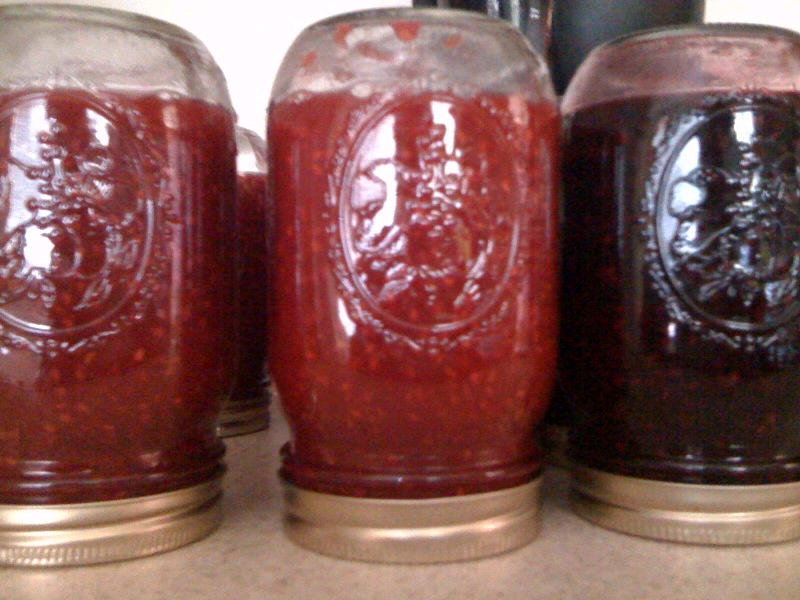
There is a happy land
Far, far away
Where we have bread and jam
Three times a day.
Oh, you should see it spread,
When we put it on the bread,
Some day you'll find us dead,
Far, far away.
Rather a morbid ending, especially as The Luton News said some of them expected to go far away to fight before many weeks have passed.
[From The Luton News, September 24th, 1914]
- Deejaya's blog
- Log in or register to post comments
Poetry of a Luton sailor
As a person, seaman Austin J. Small seems something of an enigma. But as a poet he had a powerful way with words. He first appeared on the scene in his latter capacity with a poem entitled "Destroyers" which was published in The Luton News on March 15th, 1917. Fifteen months later his moving poem "That Little Wooden Cross" appeared in the newspaper. Both are reproduced above and transcribed below for ease of reading.
Austin James Small served in the Navy from 1913 to 1920, first on destroyers and later on a minesweeper, according to information printed with his poems.
Although in 1917 he is described as a son of "Tom Small, the old Herts and Beds cricketer," with the second poem his father is named as Mr G. H. Small. Gerald Howard Small and the late Amy Ellen (died 1906 at the age of 40) had a son Austin Major Small, whose birth is on record as having been registered in the third quarter of 1894. His Navy record, using the name Austin James Small, gives his date of birth as July 25th, 1893.
At the time of the 1901 Census, the Small family, including Austin M and three brothers and a sister, were living at 31 Brook Street, Luton. They later moved to live in Downs Road. Gilbert seems to disappear off the radar after the death of his wife, and by 1911 Austin is described as a butcher boarding at the home of tram driver John Allum at 30 Chapel Street. [Records suggest that Gilbert died in late 1922.]
Austin's Navy record first described him as a a kitchen porter. That was crossed out and "music hall artiste" substituted. Even if he perhaps considered himself a bit of a comedian at heart, there was nothing to laugh at about his poetry!
DESTROYERS
Battleships grey and dabs of black,
Wires and stays and guys,
Lines that are taut, and ropes that are slack,
Slewing away on the starboard tack,
Leaving a foaming, tumbling track,
Seeking a hidden prize.
Scurrying palls of inky smoke,
Roll and whirl in flight,
Engines that hum with every stroke,
Heat and the sons of men that choke,
Cursing the blazing fires they stoke,
And the enemy our of sight.
Ominous sounds and blobs of red,
Heartaches in between,
Knowing before a word was said,
Somewhere a soul or two had fled
Leaving its mangled, stricken dead -
Gift of a submarine.
Wireless calls in the dead of night,
Unseen calls for aid,
Vibrant hums in the keel so slight,
Tossing the spray in vengeful spite,
Cleaving a way with spitfire might,
Jealous and undismayed.
Gunners that stand by the open breach,
Waiting the 'Open fire,'
Holding the lesson they long to teach,
The lesson the German loves to preach,
Vomiting shells with a whistling screech,
Bow-waves lifting higher.
Gaining a track of the hidden foe,
Sighting the submarine,
Marking his progress, slinking, slow,
Merciless hounds on a rat they go,
Seeking a tyrant's overthrow,
Swift as a Tiger Queen.
Long ere the foe's unwinking eye,
Pivots and holds the view,
Death is at work with a hissing cry,
Flung from the gun-muzzles hot and dry,
Striving to cleanse and purify
The remnants of a crew.
[The Luton News: March 15th, 1917]
THAT LITTLE WOODEN CROSS
In the glorious fields of Flanders,
Where the sad sweet poppies wave,
And cornflowers keep their vigil
O'er many a lonely grave,
There stands a little emblem,
Rough hewn and void of gloss,
But it tells its own life story -
That little wooden cross.
It tells of a khaki laddie,
Brave in the joy of life,
Who sprang to freedom's banner
And joined in the mighty strife.
It whispers of life's great gamble,
And it tells who 'won the toss.'
It marks a life's ambition -
That little wooden cross.
It tells of an unknown hero
Who fell in the great onslaught,
Sacrificed on the altars
Of Mars and Juggernaut.
It tells of noble deeds unsung,
Oe'r field and floe and floss.
It closes life's great chapter -
That little wooden cross.
Many have won promotion,
Medals and honours great,
But many, many thousands
Have won to heaven's gate.
And there in the cornflower's kingdom
Nestling among the moss,
They have won the greatest gift of all -
A Little Wooden Cross.
[The Luton News: June 13th, 1918]
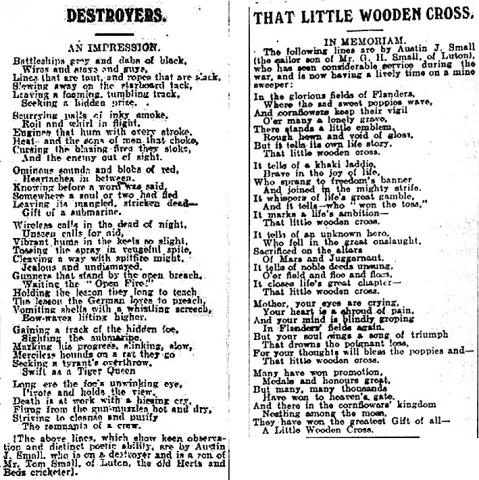
Classification:
Current Location:
Most Relevant Date:
Source:
Soldier's poetic love for smoky Luton
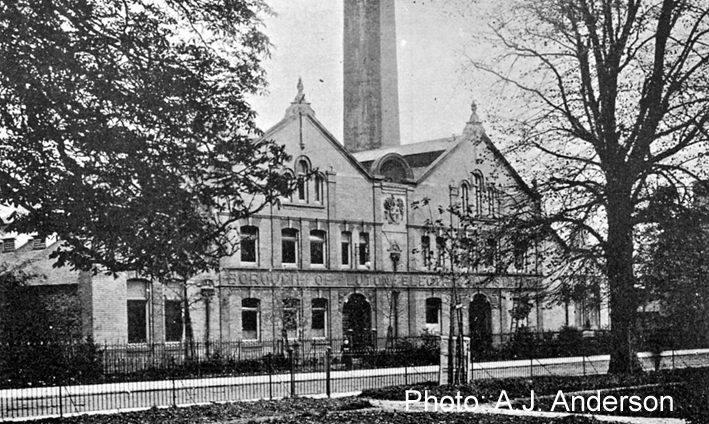
- Luton Electricity Works, a source of power and pollution.
Driver A. Fleet, with the Royal Field Artillery in Salonica, described himself as a Totternhoe boy who had been in training at Beech Hill in Luton. The town obviously created an impression on him as he wrote a poem in which he longed to be back in Luton, even if he did not paint a particularly healthy picture of the place.
LUTON BEHIND THE STRUMA*
What would I like to see? No fear!
Not London, no, nor Windermere,
Nor Paris with its sky so clear -
Give me a look at Luton.
I have it in my mental eye -
Its valleys and its hill so high,
Its smoke-cloud flung against the sky -
The smoke that blackens Luton.
Its small rills that slowly steal
Past rolling-mill and grinding wheel.
Their very names can make me feel,
That I was trained in Luton.
Oh, Leagrave, Warden, Barton Spring,
Flow onward with an endless sing,
And ripple with laughter as they ring,
Men must be free in Luton.
I know each tower and lofty dome,
That's long made Luton air its home,
And where some others, lately come,
Have reared their heads in Luton.
I mark each street and winding lane,
Oh, yes, they're black! Oh, yes, they're plain,
But let me tread them once again,
And Heaven will shine on Luton.
And I can hear as luck mayhap,
The nickerpecker's 'tap, tap, tap,'
The grindstone's hiss, the tiles 'rap, rap,'
As if I was in Luton.
Aye, and the blunt old Luton speech,
As none else to my soul can reach.
It knows not how to beg, beseech,
The tongue that's spoke in Luton.
Could I but see that smoke cap thick,
Meet swarty-breeched Tom and Dick,
And lads who make munitions quick,
I'd know I was in Luton.
But here we are! 'What for?' you say.
To teach the Boche the time of day,
And keep him far enough away
From setting foot in Luton.
* Struma probably refers to a river flowing into the Aegean.
[The Luton News: Thursday, August 16th, 1917]
- Deejaya's blog
- Log in or register to post comments
The Reservist
This poem was printed in The Luton News September 1914, and tells the tale of the harsh realities of life as a reservist when the call to take-up-arms is raised.
The Reservist
Why are you crying, Mummy dear,
What is it makes you fret?
Daddy's gone to the war, I know,
Won't he come back, not yet?
Yes, dear, he will, I hope, come back,
His Mother replies, but her eyes are dim.
We loved him so, our all in all,
Oh, they might have left us him.
But miles away, in another land,
Unmoved by the bullet's 'ping,'
His eyes "right front" to a hell of flame,
Upholding his oath to his King,
The husband fights until he wounded falls,
And lies to the close of day;
Then is found at last by the ambulance corps,
And is tenderly carried away.
And there in the little Red Cross tent,
Where some of war's price is paid,
Tossing with fever and racked with pain,
The wounded soldier is laid.
He lies and thinks of those far away,
Till kindly nature asserts her powers,
His weary head falls back at last,
And he sleeps through slowly passing tears.
Sleeps like a child tired with play,
And dreams of his cottage home,
Of his absent wife and little boy,
Whom he left across the foam.
He came in answer to duty's call,
And though oceans roll between,
His heart is true to those at home,
Through every changing scene.
Forgotten now in the land of dreams
Are all his aches and pain,
For he lives for a while in sweet content,
In touch with his home again.
His wife is waiting by the door,
In that loving way she had,
While a little boy with eager feet,
Comes running to meet his dad.
Thus pictures of the happy past,
Fly quickly across his fevered brain;
Scenes and faces he hoped to see
In the dear homeland again.
But suddenly his dreams are changed,
Instead of those he loves
He seems to lock on angel forms,
In the light that shines from above.
And then at length the morning dawns,
The surgeon comes his round
And stands at last by the little bed,
And looks but he makes no sound.
For in one swift glance his trained eye sees,
That the angel of death has been here,
And although the body remains below,
The spirit has sped to a brighter sphere.
And when the news is told to his wife,
When she knows the voice she loved is still;
Then while her heart with pain is rent
She can only murmur 'Twas Heaven's will,
To one short prayer her pain gives birth:
When I have reached life's last milestone,
May Bill and I, by death thus severed,
Be joined before the great white throne.
H. Geeves,
Luton.
September 1914
Object Location:
Classification:
Current Location:
Most Relevant Date:
The Soldier
"The Soldier" is a poem written by Rupert Brooke. The poem is the fifth of a series of poems entitled 1914. It is often contrasted with Wilfred Owen's 1917 antiwar poem Dulce Et Decorum Est. The manuscript is located at King's College, Cambridge.
If I should die, think only this of me:
That there's some corner of a foreign field
That is for ever England. There shall be
In that rich earth a richer dust concealed;
A dust whom England bore, shaped, made aware,
Gave, once, her flowers to love, her ways to roam,
A body of England's, breathing English air,
Washed by the rivers, blest by suns of home.
And think, this heart, all evil shed away,
A pulse in the eternal mind, no less
Gives somewhere back the thoughts by England given;
Her sights and sounds; dreams happy as her day;
And laughter, learnt of friends; and gentleness,
In hearts at peace, under an English heaven.
Files:
Classification:
Current Location:
Most Relevant Date:
Tom's books of Poetry
Object Location:
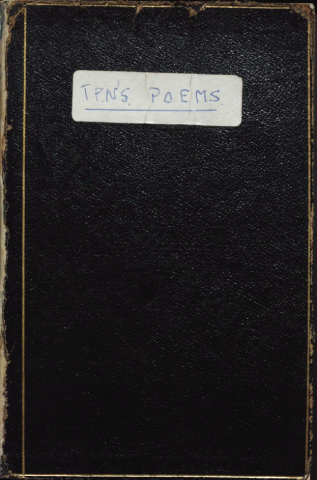
Files:
Classification:
Current Location:
Most Relevant Date:
Source Date:
We're just the same
This poem is found inside of a British Prisoner of War Magazine called - The Link - and was composed in 1917 by an anonymous author going under the name 'Nimbo'. It is an affectionate tribute to a French Colonial Soldier called Cissarat Kalifa, speaks of the realisation that people are the same under the skin, regardless of race/creed/colour and origin, and is remarkably progressive and tolerant considering the time and place it was written.
We're just the same - there's nothing queer
Except a bit more black!
We found that you weren't in the rear (Meaning 'we realised you were not hiding, you were with us on the front line)
The night of our attack!
You've been the same just all alone
Amidst the bullet showers
Your grin the night when all went wrong (All service personnel will recall laughing in the face of great fear, or when things go wrong)
Was just the same of ours!
Though doubly white the snow-flakes glance
Against your swarthy head
The blood you lost down there in France
Was just the same old red!
Nimbo.
From The Link POW Magazine, 1917.
This ‘souvenir book’ is the work of British prisoners of war interned at Döberitz near Berlin.
Object Location:
